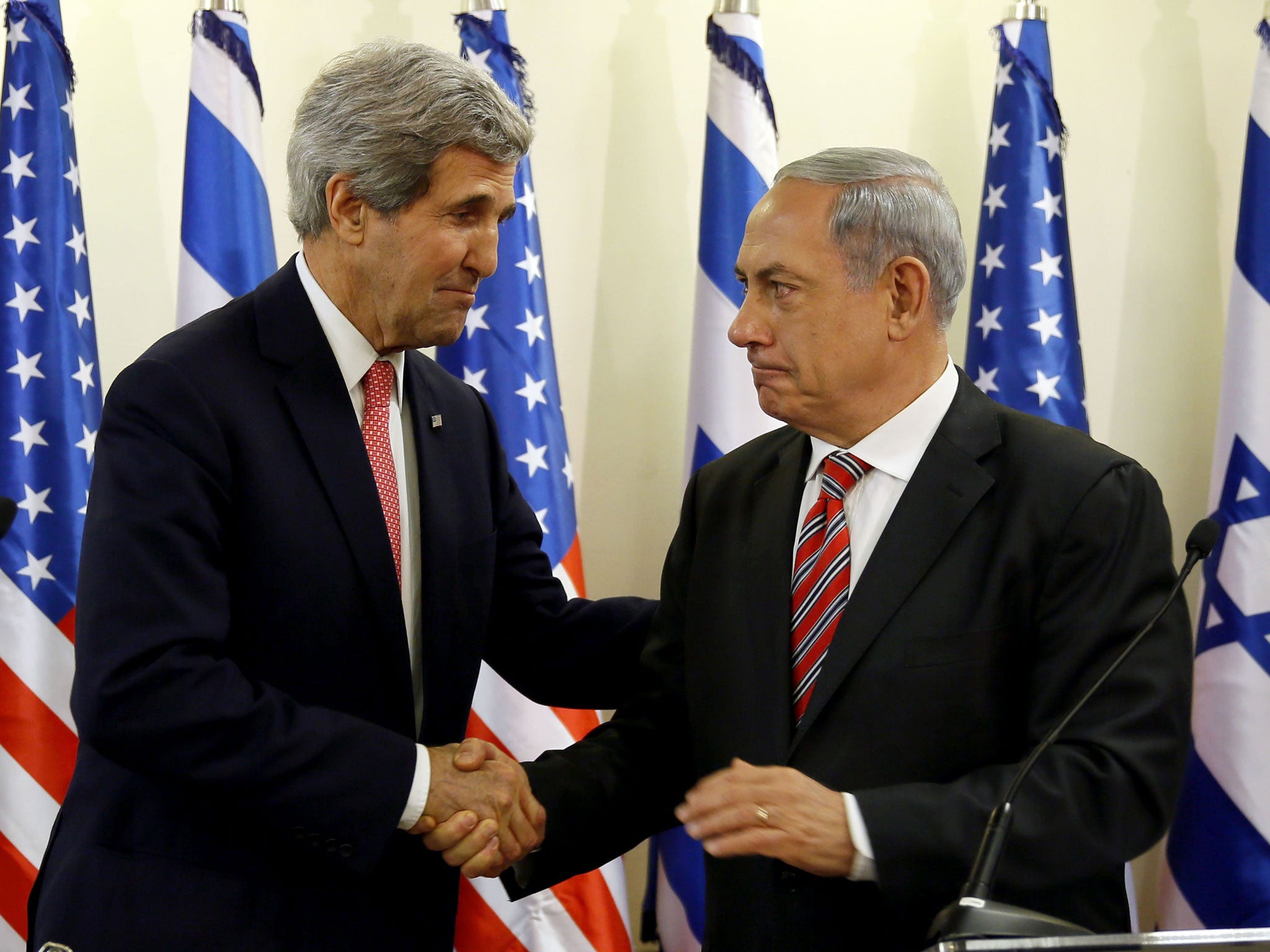John Kerry seeks to soothe Israel with security pledge

US Secretary of State John Kerry has made a fresh foray to salvage Israeli-Palestinian peacemaking, presenting to Israeli Prime Minister Benjamin Netanyahu ideas for security arrangements in the West Bank in a bid to jump-start the flagging diplomacy.
But Palestinian leaders criticised making Israeli security concerns the top agenda item and predicted a bleak and stagnant remaining period before the nine months allotted for the US brokered talks ends in April.
Israeli analysts, meanwhile, said the US would likely find it difficult to achieve a breakthrough on security issues given Mr Netanyahu’s insistence on retaining an Israeli military presence in the Jordan River valley, an area along the West Bank’s border with Jordan that Palestinians see as crucial to their having an independent state.
Mr Kerry and US special envoy on security Gen John Allen’s talks on Thursday with Mr Netanyahu marked a departure from a previous American hands-off policy of leaving the two sides to present their positions. This has brought recriminations but no visible progress. The US hope is that headway on security could spill over to the other negotiating topics, and also encourage Israel to present its positions on the borders of a Palestinian state, something it has thus far refrained from doing.
Mr Kerry told reporters after a morning meeting with Mr Netanyahu that “Israel’s security is fundamental” to the negotiations. He described Gen Allen’s role as “assessing the potential threats to Israel, to the region and ensuring that security arrangements we might contemplate in the context of the process will provide for greater security for Israel”. Mr Netanyahu said that under any agreement “Israel must be able to defend itself by itself with its own forces”. His spokesman, Mark Regev, declined to give any details of the ideas discussed, but stressed “in peace there must be an Israeli security presence in the Jordan Valley”.
“The key to Palestinian statehood is not ignoring Israel’s legitimate security concerns but in taking them into account,” he said. Mr Regev said that Israel’s pull-out from Gaza in 2005, which was followed by the takeover of the Strip by the militant Hamas movement and rocket attacks, was: “An example that is before everyone’s eyes. The Palestinians must understand that no Israeli government is going to pull out and hope for the best. There must be ironclad security arrangements on the ground to protect the peace and protect Israel if the peace unravels.”
After meeting Mr Netanyahu, Mr Kerry travelled to Ramallah for talks with Palestinian President Mahmoud Abbas, who is under increasing criticism for continuing the peace talks despite determined and repeated Israeli expansion of settlement activity in the West Bank. Mr Kerry’s prioritising of Israeli security was seen by some Palestinians as a further indication that Washington is failing to play a role of honest broker in the talks.
“We are seeing the US support the Israeli position that so-called security needs of Israel should be the utmost priority and this will justify encroachments on the territory and independence of the Palestinian state,” said Qais Abdul-Karim, a Palestinian legislator who generally supports Mr Abbas.
Hanan Ashrawi, spokeswoman for the Palestine Liberation Organisation, said that Mr Kerry was mistaken if he thinks that meeting Israeli security needs as defined by Israel would prompt the Netanyahu government to be more forthcoming on other issues. She said the government was extremist and “has no intention of making peace. So it will eat the carrot and ask for more”.
“What I expect is more stalling and attempting to find ways of maintaining a process with no substance.” Mr Netanyahu said it was the Palestinians who needed to stop “grandstanding”.
Join our commenting forum
Join thought-provoking conversations, follow other Independent readers and see their replies
Comments